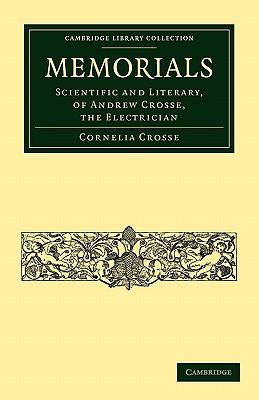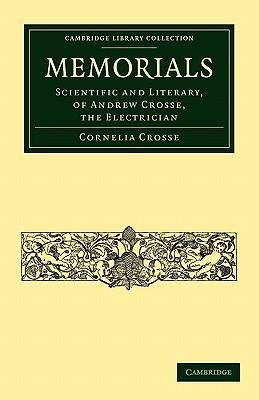
- Afhalen na 1 uur in een winkel met voorraad
- Gratis thuislevering in België vanaf € 30
- Ruim aanbod met 7 miljoen producten
- Afhalen na 1 uur in een winkel met voorraad
- Gratis thuislevering in België vanaf € 30
- Ruim aanbod met 7 miljoen producten
Zoeken
Memorials
Scientific and Literary, of Andrew Crosse, the Electrician
Cornelia Crosse, Crosse Cornelia
€ 86,95
+ 173 punten
Omschrijving
These Memorials of Andrew Crosse (1784-1855), published by his wife after his death, include his experiments, and some of his poetry and prose. After graduating from Brasenose College, Oxford, in 1805 (described in this volume as 'a perfect hell on earth'), he returned to his family's manor house where he studied electricity, chemistry, and mineralogy, and installed a mile and a quarter of insulated copper wire in his grounds. A controversial figure, Crosse was thorough in his approach to his scientific work, if somewhat unusual in his practice. In 1836 he famously conducted a series of experiments on electro-crystallization in which he noted an appearance of life forms, named Acarus, seemingly created in the metallic solutions which should have been destructive to organic life. This book recounts these experiments, and the public sensation that they gave rise to by their apparent suggestion of life created by electricity.
Specificaties
Betrokkenen
- Auteur(s):
- Uitgeverij:
Inhoud
- Aantal bladzijden:
- 380
- Taal:
- Engels
- Reeks:
Eigenschappen
- Productcode (EAN):
- 9781108014915
- Verschijningsdatum:
- 2/10/2010
- Uitvoering:
- Paperback
- Formaat:
- Trade paperback (VS)
- Afmetingen:
- 140 mm x 216 mm
- Gewicht:
- 480 g

Alleen bij Standaard Boekhandel
+ 173 punten op je klantenkaart van Standaard Boekhandel
Beoordelingen
We publiceren alleen reviews die voldoen aan de voorwaarden voor reviews. Bekijk onze voorwaarden voor reviews.











